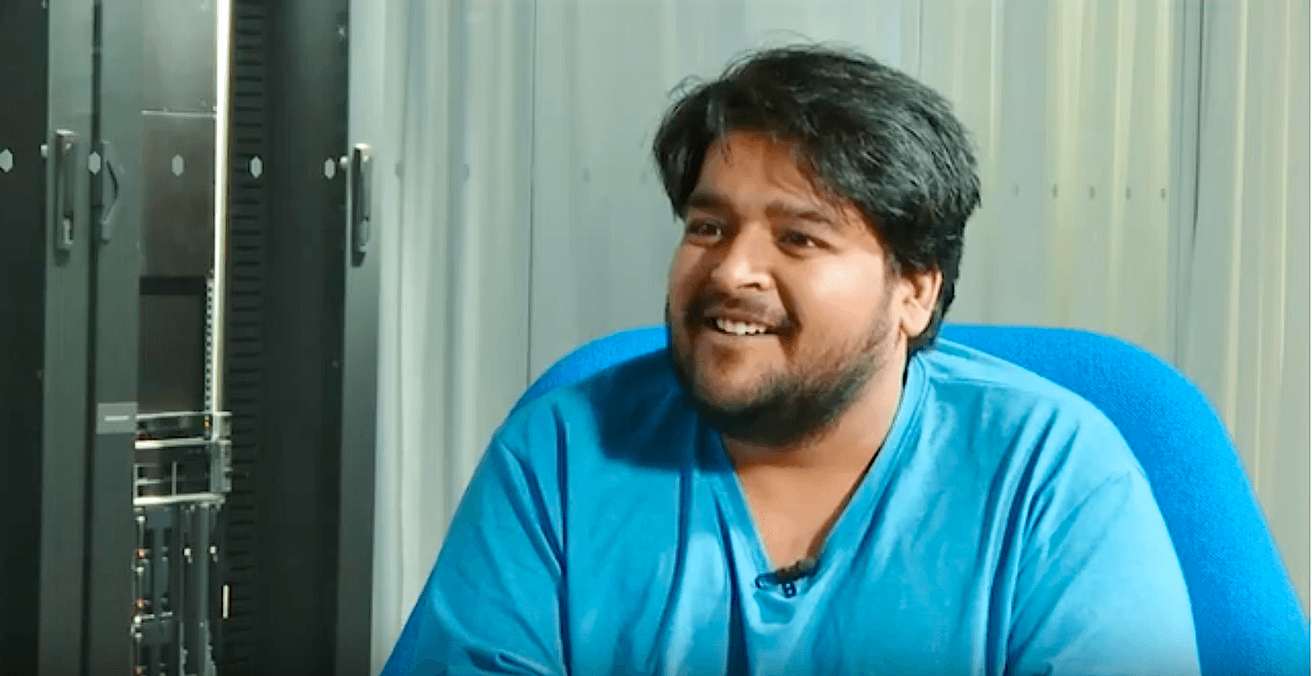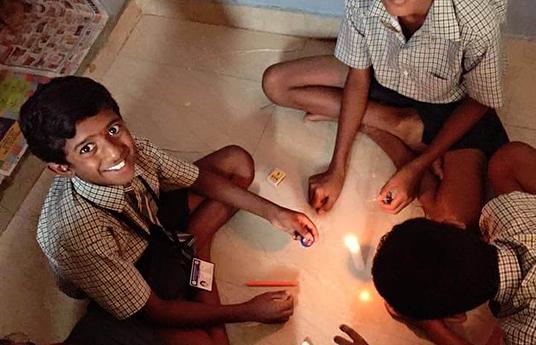Abhijit Sinha is the innovator behind Project DEFY (Design Education for Yourself), which is a system of learning that believes anyone can teach themselves anything by using the internet and the community around them to find solutions. The mission is to change the way people think and ignite individual passions so students can believe in their abilities to educate themselves, others and their communities.
What is Project DEFY?
Defy means, ‘To change the status quo’, and what we are trying to do is to change the status quo of education. But DEFY also stands for ‘Design Education For Yourself.’ So in a way, the name is both the problem and the solution. What we do is we create self-learning spaces called Nooks. These are really low-cost physical spaces inside refugee camps, slums, villages and its a learning space but without teachers and without exams; without anything that one would identify as a school. Rather it’s a place where communities gather. The place has some limited resources and each person in the community decides what education will mean for them. Each person is deciding, ‘What is it I want to do, how do I want to do it, and what do I learn in that process?’ But they don’t do it alone. And that’s what one needs. We have seen over the past few years that it’s a great environment and a great place for people to learn together. Nook gives you that; a creative environment, people who are willing to help you learn and you are willing to help them. So as a community of people teaching and learning from each other and building things and doing things together so much that they are able to manage the space completely by themselves. So all we do when we are invited into a community, we help them start the space and once things get moving we leave and that entire learning space, their own school is run by them. That is why it’s pretty interesting and pretty radical as well and it goes away from the sort of premise that we must improve schools. Maybe that is also something that works but it’s high time we start experimenting with ‘what if not schools?’ Can we even imagine that? That is what we do?
What makes self-directed learning so powerful?
I think it considers something which is usually ignored by schools. You see that there are schools in the world that completely follow the method that is instructed by the government or the center, then there are schools that are instructed by let’s say the municipality. Then there are schools where the principle can have more freedom and decide what needs to happen. Then there are schools where teachers have more freedom and can decide what can happen. Then there are very very few schools where the students can actually decide what happens in school. I think that agency is what self-directed learning gives you; control over your own education. Does it not seem like a very natural idea that if it’s your education you should have your say in it? You should have some contribution to how it is created, how it is structured, what happens with it and be allowed to make your own mistakes with your learning, rather than fall for the mistakes of others. Self-directed learning is nothing like this new pedagogy or anything like that, it’s how people have always learned. It’s how you’ve always learned everything that you did not learn in school. If you really go back in time and think there are a host of things that you learned, you never called them education, but you learned them. The brain works the same way, it’s not going to change if you’re in a classroom and if you’re outside. So self-directed learning is more useful even as a philosophy, that who does the power rest with? Who will control education? Whose education is it anyway? And that is why I find it extremely powerful. I find it extremely challenging. It is hard to make it work now because we have about 400 years of this habit of being in school. So we find it really hard when we have to decide every day ‘What is it am I going to learn?’ I heard from a friend who heard a child say: they asked, ‘What is the best thing about making your own education?’ And I think she said, ‘ The best thing is, I can do whatever I want. I wake up in the morning, I ask myself, what am I going to do today? Then they asked, what is the worst thing about trying to figure out your own education? The answer:‘I can do whatever I want, I wake up in the morning and ask myself, ‘What am I going to do today?’ But the very fact that she has a choice to wake up in the morning and ask; We are sending kids to school forever, for 15 years, never once asking why.
How has the internet changed how we view learning?
Humans have a sort of tendency that every time a new tool comes into play, we start believing that the tool is more important than the job. In that way, I feel that there have been instances of education methods or schools that I have seen, or spaces, where people start believing that the tool or app that they are creating or the internet they are using is education by itself. They are tools, and they are useful tools, we use the internet as well in our spaces but that’s not really what education is. It helps you educate yourself, it helps you in the learning process, but so do people around you, so does being in a forest. We have to be careful about believing that technology by itself makes everything right. No, it’s people who always make things right, its a community of learners that makes a great education and you can have the best internet connection which might fail in front of a bunch of people teaching each other in the sand on the beaches of Chennai or something, so we should just not ignore that. I feel very strongly about it because I’m seeing this over and over again. I'm seeing companies coming up with lots of tools; and innovation in education has become about ‘creating tools’ not creating environments, not working with humans, and that is troubling to see.
What is the ideal learning environment from your point of view?
An ideal learning environment from my point of view is a place where everyone’s point of view is creating an ideal learning environment. I can never tell what should be your ideal learning environment, I can only talk about myself. But together, we can create an environment that works for both of us. That’s why we call it DEFY: ‘Design Education for Yourself.’ At one point someone asked me, so what is the ideal education? I said I can only answer that question for me, so I guess the ideal education is whatever people want to have as an ideal education. But we are a society, which means we create a common ground, we create a place where all of us, all of our interests are there. When people change, the very definition of that space changes, the very definition of ideal education, ideal learning, an ideal environment changes. I guess an ideal education is one where people have the power to do that. They don’t have to just get stuck with what is there, they have the power to negotiate. They have democracy in play.
To learn more about Project DEFY, visit their Innovation Page

